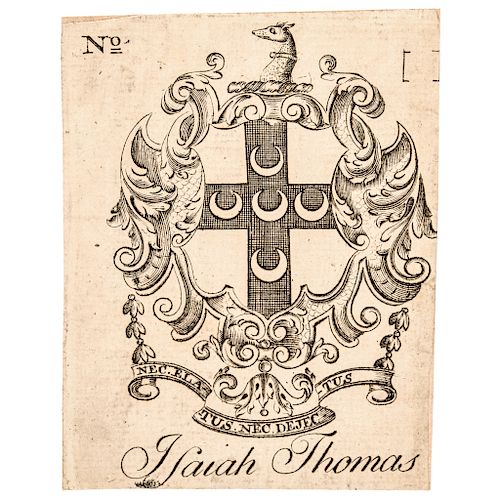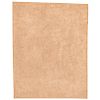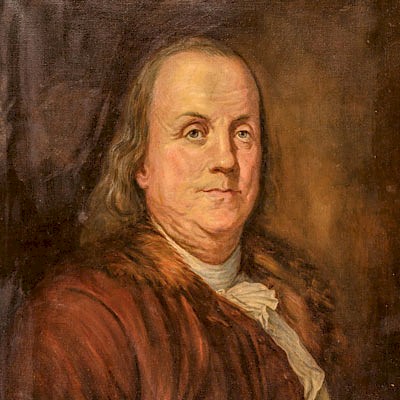Original PAUL REVERE JR. Engraved Bookplate for Historic Printer Isaiah Thomas
Lot 108
Estimate:
$2,000 - $2,500
Absentee vs Live bid
Two ways to bid:
- Leave a max absentee bid and the platform will bid on your behalf up to your maximum bid during the live auction.
- Bid live during the auction and your bids will be submitted real-time to the auctioneer.
Bid Increments
| Price | Bid Increment |
|---|---|
| $0 | $10 |
| $200 | $20 |
| $300 | $25 |
| $500 | $50 |
| $1,000 | $100 |
| $2,000 | $200 |
| $3,000 | $250 |
| $5,000 | $500 |
| $10,000 | $1,000 |
| $20,000 | $2,000 |
| $30,000 | $2,500 |
| $50,000 | $5,000 |
| $100,000 | $10,000 |
| $200,000 | $20,000 |
| $300,000 | $25,000 |
| $500,000 | $50,000 |
About Auction
By Early American History Auctions
Aug 24, 2019
Set Reminder
2019-08-24 12:00:00
2019-08-24 12:00:00
America/New_York
Bidsquare
Bidsquare : Autographs, Colonial Currency, Political Americana, Historic Guns
https://www.bidsquare.com/auctions/early-american-history-auctions/autographs-colonial-currency-political-americana-historic-guns-4347
Historic Autographs • Colonial Currency • American Civil War Colonial Era • Revolutionary War • Political Americana • Black History Early American History Auctions auctions@earlyamerican.com
Historic Autographs • Colonial Currency • American Civil War Colonial Era • Revolutionary War • Political Americana • Black History Early American History Auctions auctions@earlyamerican.com
- Lot Description
Colonial America
Paul Revere Engraved Print For Patriot "Isaiah Thomas" Metal-Cut Copper-Plate Custom Ornate Personal Bookplate
c. 1798 pre-1800, Paul Revere Jr. Original Engraved Copper-Plate Bookplate Printed for American Patriot, Newspaper Publisher, and Founder of the American Antiquarian Society, Isaiah Thomas (1749-1831), Crisp Extremely Fine.
This authentic Paul Revere Metal-cut Copper-Plate Printed Bookplate was Engraved by Revere at Boston for the historic Worcester, Massachusetts American Revolutionary War Patriot, Isaiah Thomas. Isaiah Thomas performed the first public reading of the Declaration of Independence in Worcester, Massachusetts. He reported the first account of the Battles of Lexington and Concord. This authentic ornate Bookplate measures about 3.5" tall x 2.5" wide. It is sharply printed in deep black ink on correct period laid paper. This Bookplate is uniface, slightly cropped, and laid down on tan paper likely when placed into a book by Isaiah Thomas. An illustration of this Bookplate design type is fully described on pages 163 to 165 of Clarence Brigham's 1954 major reference book titled, "The Engravings of Paul Revere." The only other sole example we previously offered in our EAHA Auction of August 25, 2012, Lot 148 graded Choice Extremely Fine also trimmed, which sold at $2,360. An important and historic Bookplate Print made directly off Paul Revere's Hand-Engraved Copper-Plate for the American Patriot Isaiah Thomas.
Isaiah Thomas (1749 - 1831), was an American Patriot, Newspaper Publisher and Author. He performed the First Public Reading of the Declaration of Independence in Worcester, Massachusetts and reported the very first account of the Battles of Lexington and Concord. He was the Founder of the American Antiquarian Society.
In Boston, in 1774, Isaiah Thomas published the Royal American Magazine, which was continued for a short time by Joseph Greenleaf, and which contained many historic engravings by Paul Revere. He issued in Boston the Massachusetts Spy three times each week, then (under his sole ownership) as a semi-weekly, and beginning in 1771, as a weekly which soon espoused the Whig cause and which the government tried to suppress.
On the April 16, 1775 (three days before the Battle of Concord, in which he took part), Thomas took his presses from Boston and set them up in Worcester, where he was also postmaster for a time. There he published and sold books, built a paper-mill and bindery, and continued the paper until 1802 save for gaps in 1776-1778 and in 1786-1788. The Spy supported George Washington and the Federalist Party.
- Shipping Info
-
Early American provides in-house worldwide shipping. Please contact us directly if you have questions about your specific shipping requirements.
-
- Buyer's Premium



 EUR
EUR CAD
CAD AUD
AUD GBP
GBP MXN
MXN HKD
HKD CNY
CNY MYR
MYR SEK
SEK SGD
SGD CHF
CHF THB
THB












